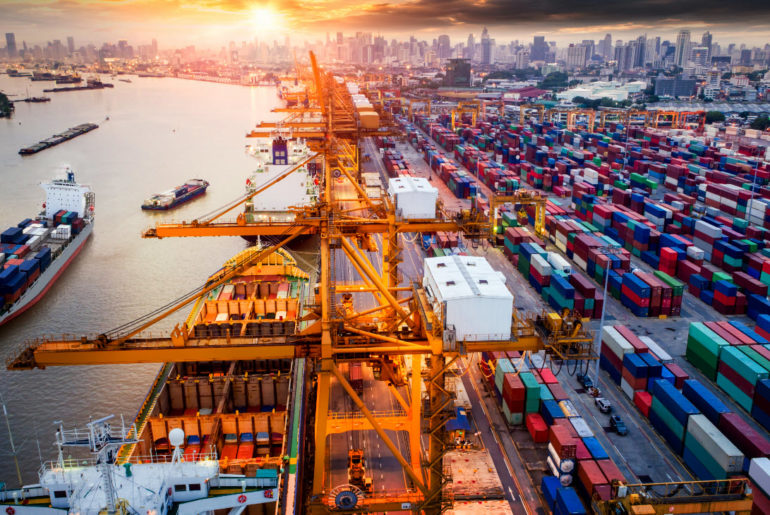On 30 November 2022, Legislative Decree Number 111 was published in the Official Gazette of the Government of the State of Guanajuato.
The Decree, which came into effect 1 January 2023, added “Ecological Taxes for Environmental Remediation,” to the Finance Law for the State of Guanajuato under Chapter Eight, Title Two and established three ecological taxes
On 2 February 2023, the OECD/G20 Inclusive Framework on BEPS released technical guidance to assist governments in the local implementation of the Global Anti-Base Erosion Model Rules (“GloBE Rules”). This should help governments to correctly apply the GloBE Rules to large Multinational Enterprises from the start of 2024. Moreover, it aims to ensure a coordinated and harmonized implementation of the GloBE Rules. The Administrative Guidance takes the form of a modification to the original version of the Commentary that was issued in March 2022.
On 1 February 2023, the European Commission released its communication on a “Green Deal Industrial Plan for the Net-Zero Age”. This Communication outlines the actions that the Commission intends to take to stimulate investment in the “net-zero industry” within the EU. The Communication is a response to recent increases in state support outside the EU, most notably the United States Inflation Reduction Act.
The Union Customs Code (UCC) harmonizes the customs laws of the European Union. The UCC stipulates that Member States must impose penalties for failing to comply with customs legislation, and that these penalties must be efficient, proportionate, and dissuasive. Member States must notify the Commission of the penalties that they apply to various acts of noncompliance and of any subsequent amendments to those penalties (if applicable).
A declarant may ask for a change to certain of the data elements in a customs declaration in accordance with Article 173 Union Customs Code (UCC), which is applicable to customs declarations that have already been accepted by customs. The Dutch Customs Authorities (DCA), however, apply a very strict application of Article 173 UCC, stating that amendments are only allowed if the amendments are required by customs legislation. This position taken by the DCA deviates from the practice of the tax authorities of other EU Member States, given the fact that Article 173 UCC does not stipulate that the amendments must be required by law.
On 26 January 2023 HM Revenue & Customs announced that, as of 1 January 2023, it has nine live Corporate Criminal Offenses investigations for the failure to prevent the facilitation of tax evasion, with a further 26 investigation opportunities under review. These live and potential investigations cover 11 different business sectors including software providers, labor provision, transport, accountancy and legal services.
On 12 January 2023, Provisional Measures, Decrees and Ordinances were published with the purpose of reducing the Federal Government’s budget deficit.
The Brazilian Federal Revenue Service’s Normative Instruction No. 2119, published on 6 December 2022, amended the provisions on the requirements to the General Taxpayer’s Registry under the Brazilian Federal Revenue Service, as well as the provisions related to the Disclosure of Ultimate Beneficial Owner with the Federal Revenue Service.
On 20 December 2022, the Indonesian government issued Government Regulation No. 55 of 2022 on the Adjustment of Regulations in the Field of Income Tax (“GR 55/2022”). This regulation is one of a series of government regulations issued in December 2022 as the implementing regulations of Law No. 7 of 2021 on Tax Regulation Harmonization (“HPP Law”). Several regulations related to income tax (i.e., GR 18/2009, GR 23/2018, and GR 30/2020) are no longer valid, and have been consolidated through the issuance of GR 55/2022. GR 55/2022 mainly provides confirmation and a detailed explanation of income tax provisions under the HPP Law. These include income tax on benefits-in-kind, anti-tax avoidance measures, and international tax agreements.
Now may be a good time for multinational enterprises with subsidiaries in low or no tax jurisdictions to consider the amount of economic substance they have in these jurisdictions: to ensure compliance with economic substance rules, generally enacted from 2019 onwards, largely in response to the requirements of the OECD Forum on Harmful Tax Practices and the EU Code of Conduct Group; and to alleviate the impact of the Pillar 2 rules, which will begin to apply from 1 January 2024, multinational groups should consider substance for the “Substance-based Income Exclusion”.



